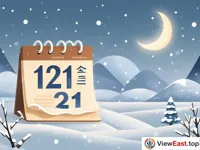
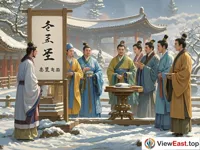

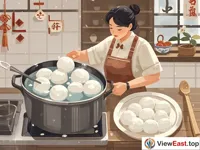
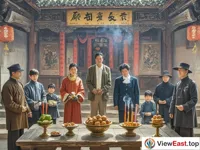

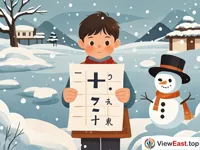
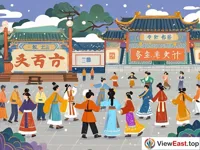
Winter Solstice, an important solar term in the Chinese lunar calendar, usually falls on December 21st or 22nd, marking the day with the shortest period of daylight and the longest night of the year. In China, Winter Solstice is not only a solar term but also a festival filled with traditional customs and cultural significance.
I. Historical Origin of Winter Solstice
The celebration of Winter Solstice dates back to the Han Dynasty. The ancients believed that it was the turning point where Yin and Yang energies alternated, and the Yang energy began to rise, signifying the start of a new cycle. Thus, this day was given special significance.
II. Traditional Customs of Winter Solstice
Eating Dumplings: In northern China, it is customary to eat dumplings on this day, symbolizing reunion and warmth.
Eating Tangyuan: Southern regions have the habit of eating tangyuan, representing family unity and harmony.
Ancestral Worship: Many families perform ancestral worship on this day, expressing remembrance and respect for their forebears.
Counting the Nine: Starting from Winter Solstice, people count "nine" to measure the severity of winter. Each nine-day period is called a "jiu," and when counted to "nine nines," spring arrives.
Health Preservation: Winter Solstice is also an excellent time for health preservation. People strengthen their physique through proper diet and exercise.
III. Modern Evolution of Winter Solstice
As times change, the ways of celebrating Winter Solstice are becoming modernized:
Family Gatherings: More and more families choose to hold gatherings on this day to enjoy the warmth of family.
Cultural Activities: Some places host cultural activities related to Winter Solstice, such as Winter Solstice Cultural Festivals and poetry recitations.
Online Interactions: People share Winter Solstice blessings and customs through social media, enhancing emotional communication among relatives and friends.
IV. Cultural Significance of Winter Solstice
Winter Solstice is not just a solar term; it reflects the Chinese people's observation of nature, emphasis on family, and understanding of the cycle of life.